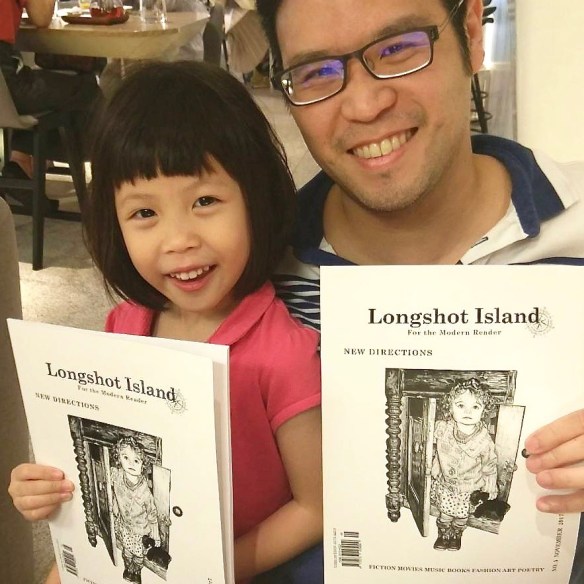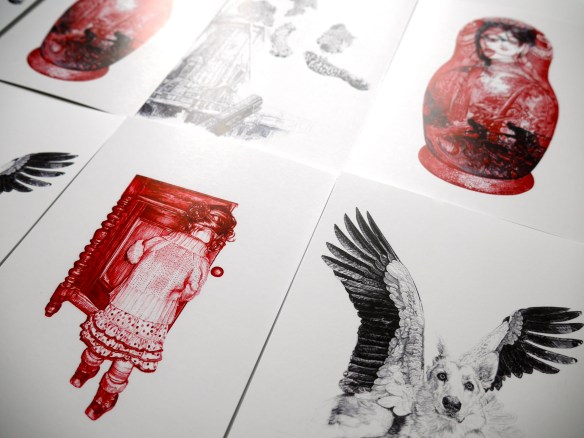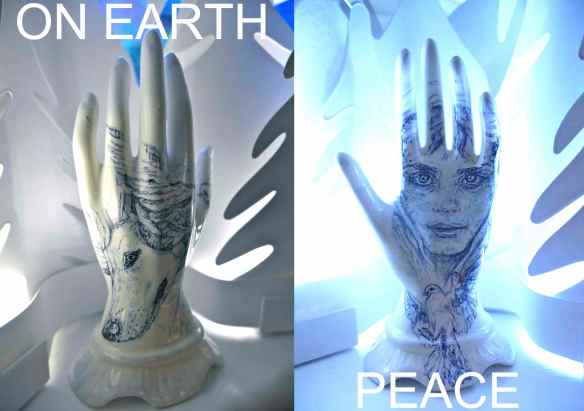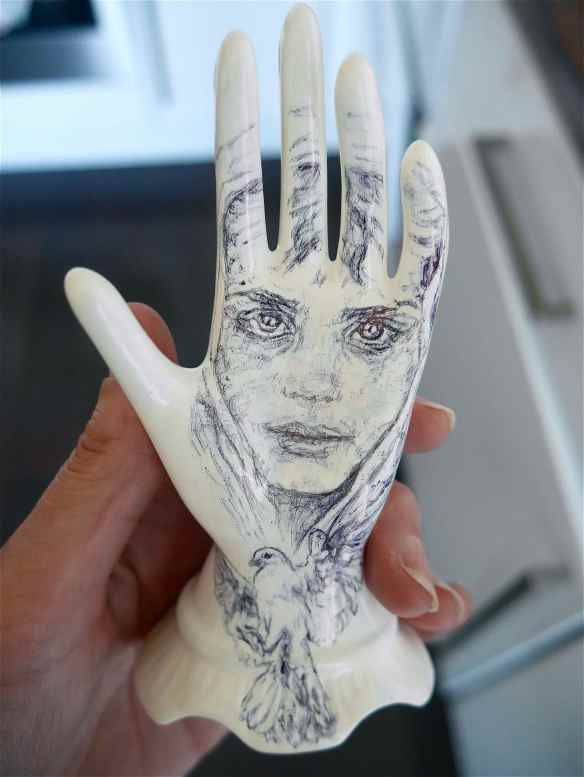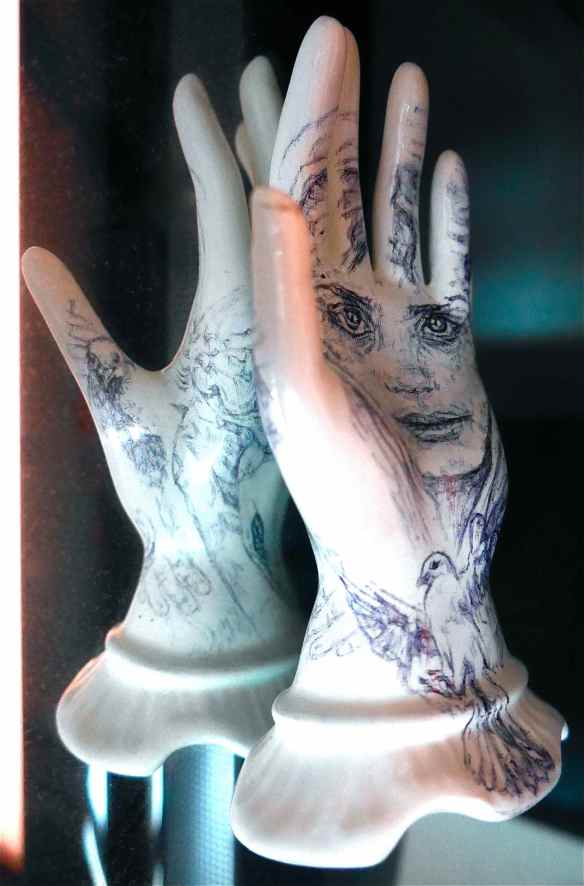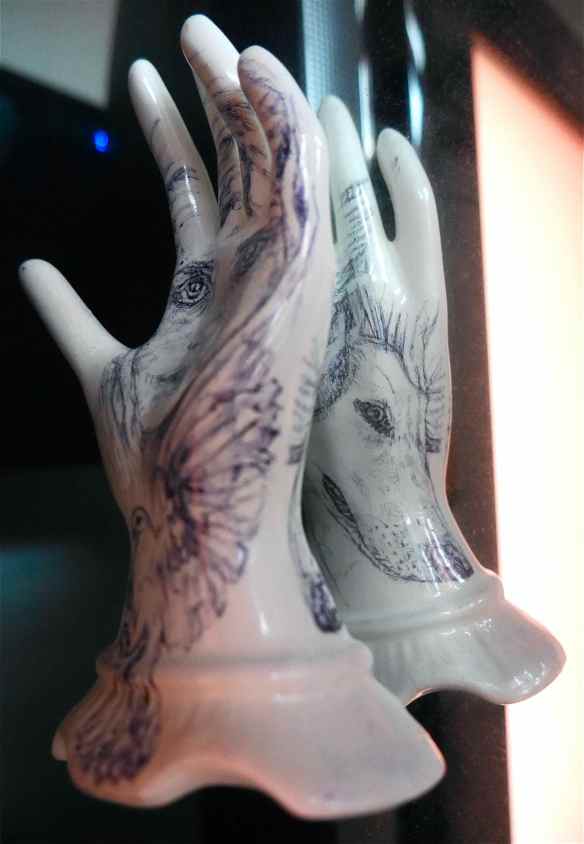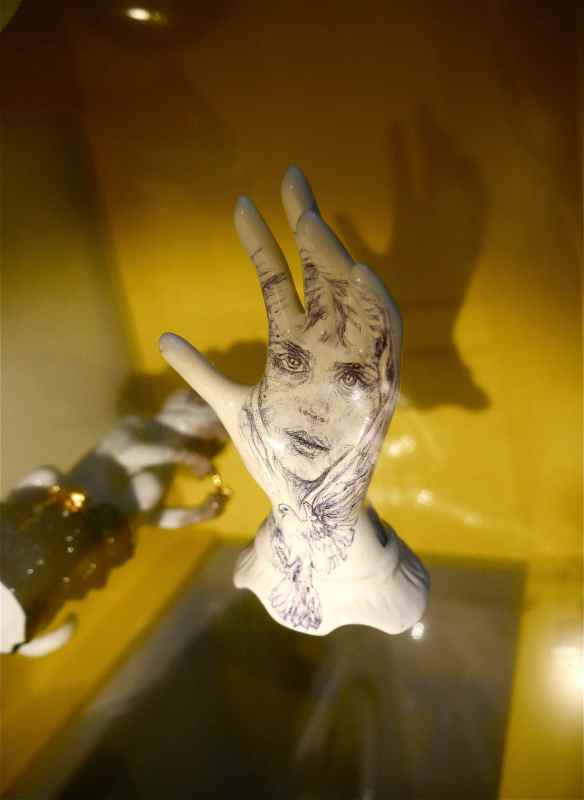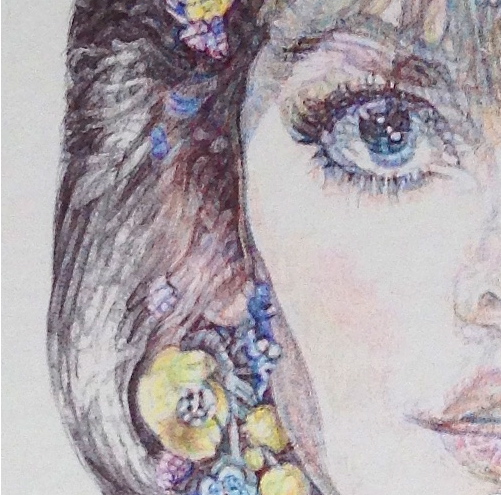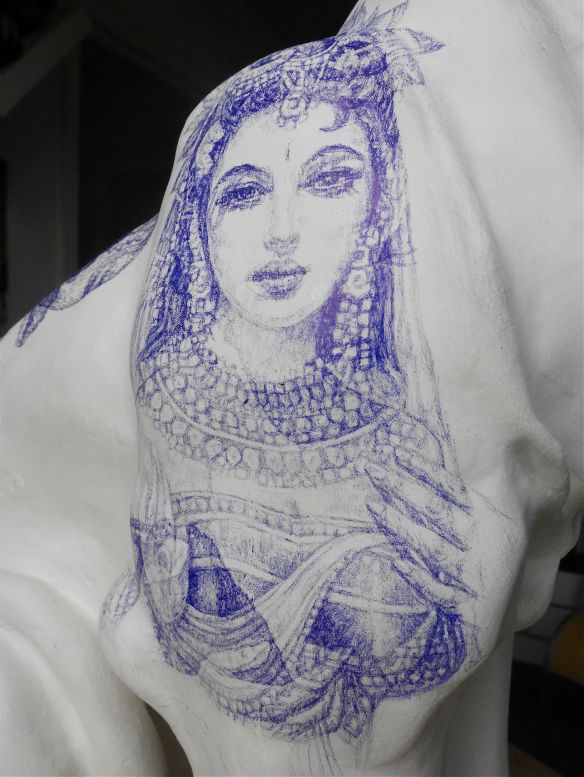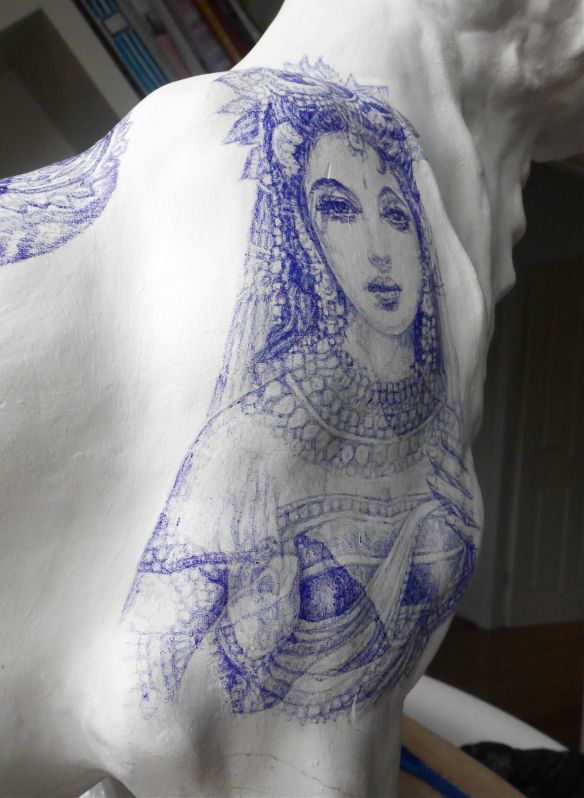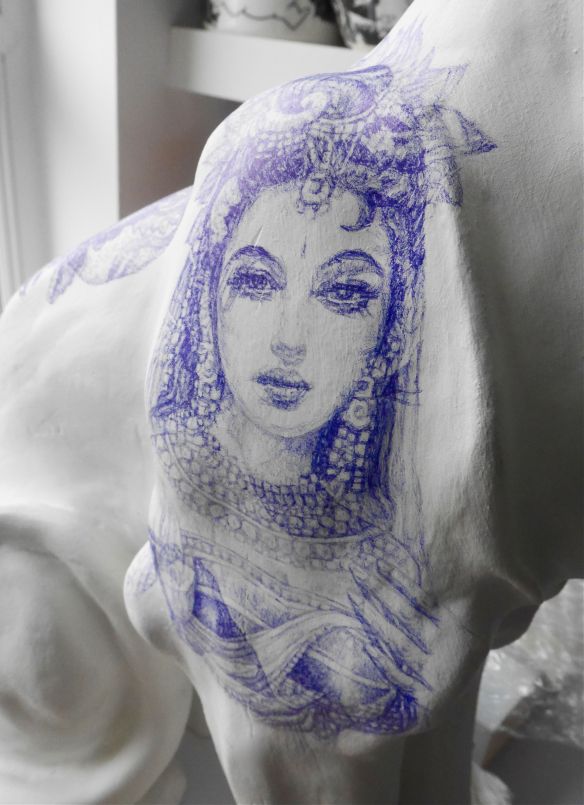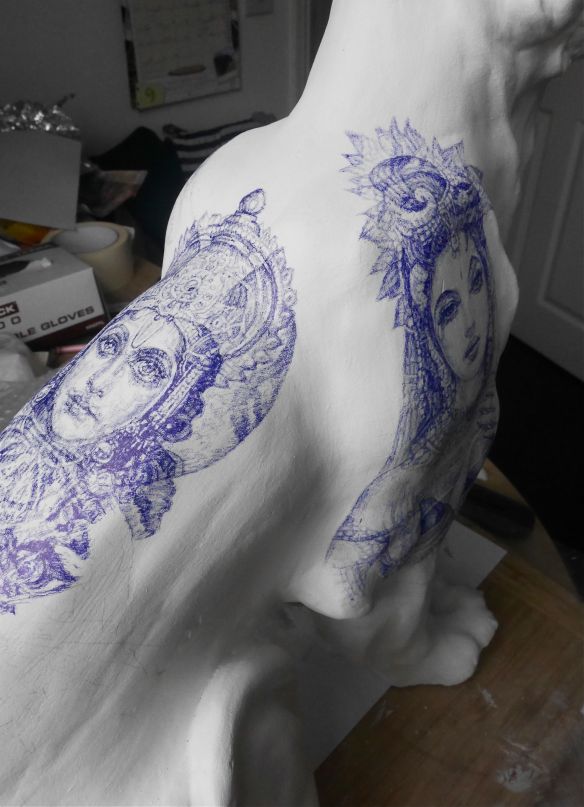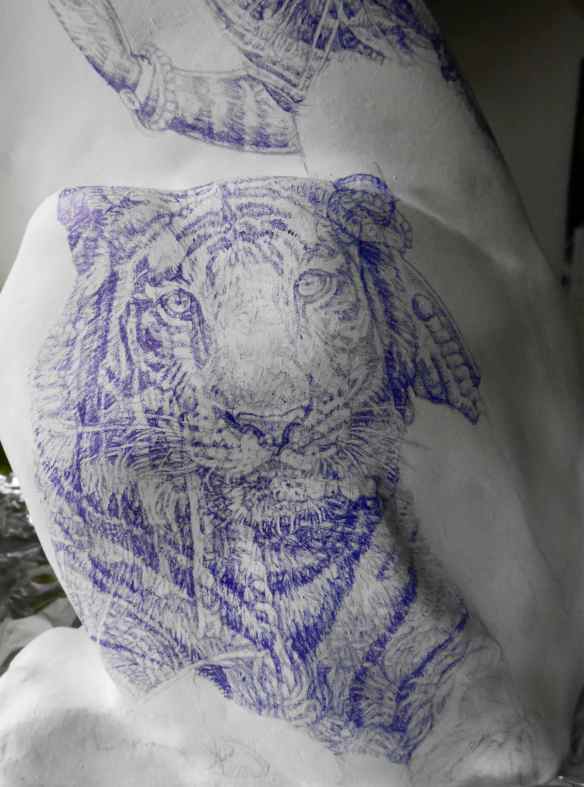
‘A Spoonful of Laika’, 2010 black and red Biro drawing by Jane Lee McCracken
On 3 November 1957 Лайка or Laika, a Moscow stray was launched into space onboard Sputnik 2. She had been selected by Soviet scientists to become the first dog in space on a mission to honour the 40th anniversary of the Bolshevic Revolution. Laika was knowingly sacrificed, as the technology allowing spacecraft to de-orbit had not yet been discovered. The launch of Sputnik 2 was on the insistence of Nikita Khrushchev, Russian Premier, and yet little scientific knowledge was gained from this mission. Official propaganda up until 2002 led Russians to believe that Laika had died from lack of oxygen or been euthanised after enduring four days in space. ‘In fact stress and overheating in the capsule had killed her in less than five hours’. (Laika, Nick Abadzis, 2007)

Cosmonaut Laika, 1957
Jane Lee McCracken’s drawing ‘A Spoonful of Laika’, depicts Laika sitting in the bowl of a Russian Khokhloma wooden painted spoon from Jane’s Russian artefact collection. Laika’s innocent stance represents the unknowing sacrifice she would make for human gains during the Space Race. The spoon is an allegory to the song from ‘Mary Poppins’, suggesting a ‘spoonful of dogs’ is as remedial as sugar for the unconditional love and devotion they instinctively give humans. This artwork also signifies that man’s reciprocation towards canine loyalty is not always with acts of kindness and care.
Laika Gallery:

Commemorative Laika Memorabilia

Laika in training, 1957

‘Soviet Sputnik Musical Cigarette Case’, 1957 USSR from Jane Lee McCracken’s collection

‘Laika Cigarette Packet’, USSR circa 1958
Laika’s heroism was immortalised in 2008 with her own statue in Star City, Russia.

‘Laika Monument’, Star City, Russia, 2008
Nick Abadzis’s beautiful graphic novel, ‘Laika’, 2007 memorialises the life of the Moscow street dog of Siberian Husky mix, who was named after the Russian word for ‘Barker’ or ‘Husky’, by the scientists who trained her.
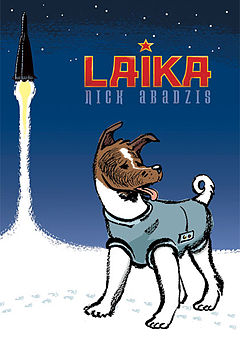
‘Laika’, Nick Abadzis, First Second, 2007
The end plate of ‘Laika’ is devoted to the poignant and moving 1998 quote by Oleg Gazenko, the scientist who led the Soviet Animals in Space Program and trained Laika:
“Work with animals is a source of suffering to all of us. We treat them like babies who cannot speak. The more time passes, the more I’m sorry about it. We did not learn enough from the mission to justify the death of the dog.”

Oleg Gazenko at a press conference in 1960 holding Belka and Strelka who safely returned to earth after their space flight. Image courtesy of Chris Dubbs collection.
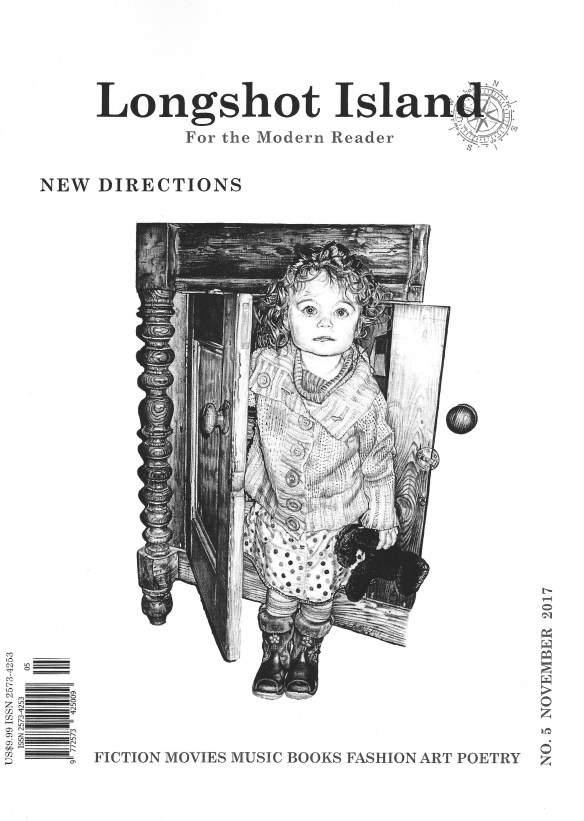
![Jane McCracken [Colour Artwork]](https://picturesoflilyblog.com/wp-content/uploads/2017/11/new-work-the-sideboard-ii-11-46-31.jpg?w=584)

